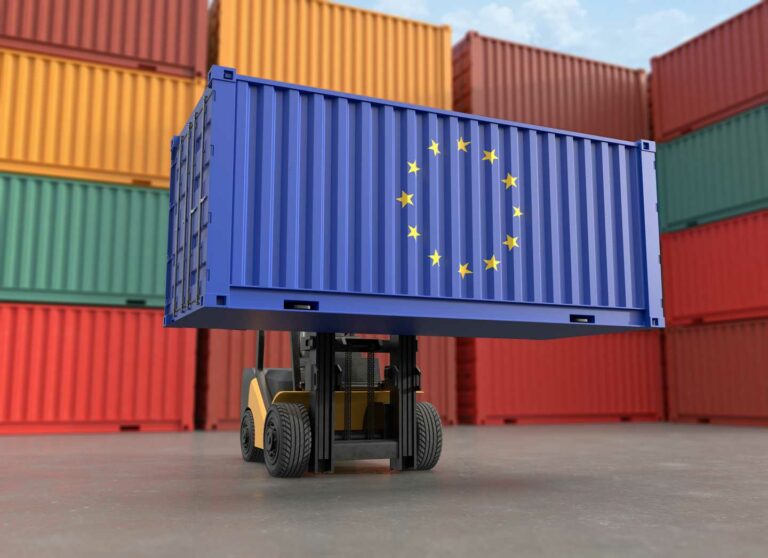Tax representative or tax agent: which one do you need to appoint? Find it out in this article.
What is the difference between a tax representative and a tax agent?
When it comes to the Value Added Tax (VAT), the tax representative and the tax agent fulfill the same mission: filing declarative procedures and obligations on their clients’ behalf – VAT registration, VAT declaration submission, filing and tracking VAT return applications, communication with local tax administrations, support in the event of tax inspections, etc…
The fundamental difference between tax representative and tax agent lies in the way they operate and their scope of responsibility.
The tax representative and the tax agent both act on a foreign company’s behalf. Nevertheless, where the tax agent operates in the name of the company, the tax representative operates in his own name. This is why the tax representative is personally committed to pay the tax administrations and must be accredited beforehand.
In this way, the authorized tax representative is, in general, collectively liable for the VAT owed by the company he represents. Should the represented company fail to pay the VAT they are liable for, the tax administration may collect the sum directly from the tax representative. The tax representative is thus a monetary insurance for the tax authorities.
However, this monetary insurance becomes unnecessary when a company’s country of establishment and the country of an activity liable for VAT have signed an international treaty of tax collection assistance. In such cases, the local tax administration can request assistance from the country of establishment to recover the money directly from the company. This is the reason why the companies established within the European Union are always exempted from appointing a tax representative in other Member-States: international tax assistance is always compulsory in the EU.
Conversely, regarding companies established outside of the European Union, the 2006/112/CE Directive (pdf in French) gives Member States the choice to make the appointment of a tax representative compulsory or not. If most countries have decided to make the appointment of a tax representative compulsory, other Member States such as Germany, choose not to use tax representatives, even in the absence of an international treaty of tax collection assistance. In that case, tax representation doesn’t exist.
In which EU member-States is the appointment of an authorized tax representative an obligation?
The following EU member States impose companies established outside of the EU to appoint a tax representative if they perform taxable operations:
- Austria
- Belgium
- Bulgaria
- Croatia
- Denmark
- Spain
- Estonia
- Finland
- France
- Greece
- Hungary
- Italy
- Lithuania
- Malta
- Poland
- Portugal
- Romania
- Slovenia
- Sweden
As mentioned previously, some of these EU member States have signed international treaties of tax collection assistance with certain non-EU countries. Companies established in these third countries are then exempt from the obligation to appoint a tax representative.
Contact us to find out if your company can be exempted from appointing a tax representative.
Warning: non-compliance with the obligation to appoint a tax representative is heavily penalized by the European tax services and may prevent VAT return altogether.
In addition, please do note that European partners (providers, suppliers, clients, marketplaces…) systematically refuse to deal with non-European companies that failed to appoint a tax representative, as it would be too risky for them.
What are the operations that trigger the obligation to appoint a tax representative in these countries for companies established outside of the EU?
Appointing a tax representative is a legal obligation for all companies established outside of the EU that perform the following taxable operations in the countries listed above:
- Importation of goods from non-EU countries
- Exportation to countries outside of the EU
- Purchases of goods from other EU member states
- BtoB supplies of goods to EU member states
- BtoC supplies of goods and services to individuals of this other EU member state, including via Marketplaces
Is the tax representative a stable entity?
In accordance with the permanent European case law, the tax representative cannot be considered as a stable entity with regards to the corporate tax.
In particular, a foreign company that has appointed a tax representative in an EU member state will not be subjected to the corporate tax in this member state.
Tax representation thus allows foreign companies to enter the European market while avoiding the costs and constraints of physical implantation such as: the creation of a structure, the management of a separate accounting and the liability for corporate tax on the company’s profit in that country.
Beyond the legal obligation, tax representation is a simple and economical alternative to physical implantation by creating a branch or a subsidiary.
When appointing a tax representative is not an obligation, why should you appoint a tax representative?
Intra-community VAT is a complex subject, constantly evolving. It requires an extremely detailed expertise. Even if VAT is mostly determined at a European level by the means of European directives and there are similarities from one member State to the next, there is also a number of significant differences.
Besides differences in VAT rates, member States have some leeway in the application of certain exemptions, favorable treatments, reverse-charge mechanisms, etc…
Like this, a transaction performed by a non-EU company that may be invoiced without tax in one member State may also be invoiced with tax in a different member State.
Furthermore, certain expenses can make your company eligible for VAT return in some countries, even as the refund of VAT may only be partial, or entirely forbidden in other countries.
Mistakes can lead to drastic financial consequences: tax inspections, loss of VAT refund rights, withdrawal of tax exonerations, additional taxes, fines, delayed interests, etc…
Finally, please do remember that VAT-related procedures, tax obligations and tax inspections must be completed in the local language, through specific forms and within particular timeframes. Facing these challenges on their own is very difficult for non-EU companies.
This is why appointing a tax agent specialized in the VAT of the country of activity is essential if you want to secure the operations subject to VAT in said country.




